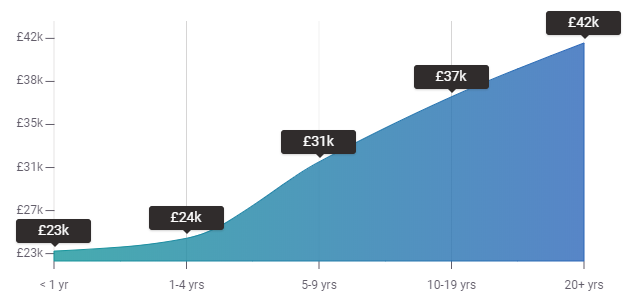You are probably thinking about the remuneration! Of course, it’s the sweetest part of any job!
Average Speech-Language Therapist reward in the United Kingdom is £25,766 per year.
The National Health Service payment rates usually comprise 9 pay scales. A newly qualified SLT your starting salary is likely to be £23,023 (Band 5), advancing the pay band to £29,608.
When you become a specialist, yearly you can make roughly £28,050 and £36,644 (Band 6).
Typical salaries for superior or highly specialised SLTs range from £33,222 to £43,041 (Band 7). In some management roles such as Head of Children’s Therapies, you can attract more high-priced salaries at Band 8.
All these rates are stated by the Agenda for Change (AFC) Pay Rates.
To get a clear vision I am providing a graph that depicts the Pay by Experience Level for Speech-Language Therapists.


![]() 13 minutes
13 minutes








































